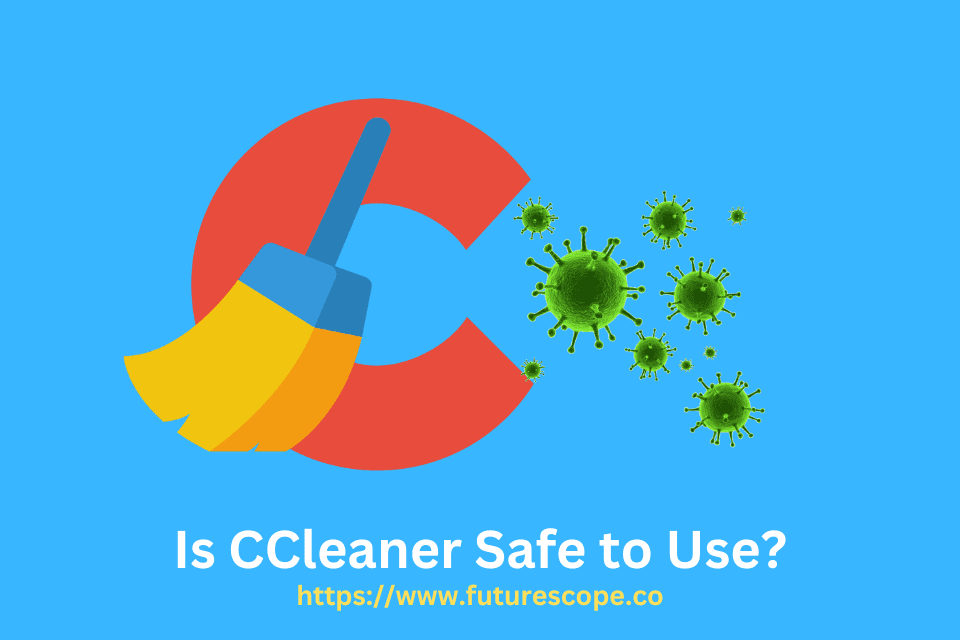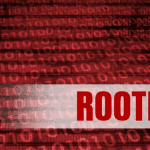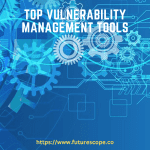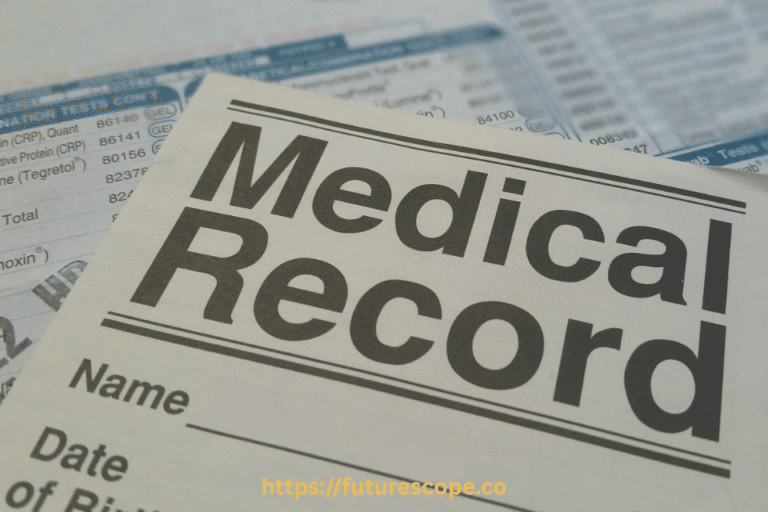CCleaner is one of the most widely used software tools for cleaning and optimizing computers, with millions of users relying on it to remove temporary files, manage startup programs, and improve system performance. The software was first launched in 2003 by Piriform Ltd., which was later acquired by Avast in 2017. Since its inception, CCleaner has become a go-to choice for many individuals and businesses seeking to enhance the performance of their PCs.
However, over the years, concerns about its safety have arisen, particularly due to past security incidents and ongoing debates about its features. In this article, we’ll explore whether CCleaner is safe to use in 2025, examining its history, current status, and providing you with the information you need to make an informed decision.
What is CCleaner?
CCleaner, developed by Piriform (now owned by Avast), is a utility program designed to clean up and optimize your computer. It removes unnecessary files such as temporary files, internet history, and cache, which can accumulate over time and slow down your system. Additionally, CCleaner offers features like registry cleaning, software uninstallation, and startup management. The software is available for Windows, Mac, and Android devices, making it a versatile tool for users across different platforms. With over 2.5 billion downloads, CCleaner has established itself as a go-to solution for system maintenance (CCleaner Official Website).
Primary Functions of CCleaner
The core functionalities of CCleaner include:
- Junk File Removal: CCleaner scans for and deletes various types of junk files, including browser caches, application logs, and download histories. This process can significantly reclaim storage space and improve system speed.
- Registry Cleaning: The tool offers the ability to clean the Windows registry by removing outdated or broken entries. A tidy registry can lead to improved system stability and performance.
- Uninstall Applications: CCleaner provides an easy way to uninstall unwanted software, allowing users to manage their applications more efficiently.
- Startup Management: Users can control which programs run at startup, potentially speeding up boot times and improving overall performance.
- Privacy Protection: CCleaner includes features to protect user privacy by securely deleting browsing history and other sensitive data.
Safety Concerns
The 2017 hack remains one of the most significant safety concerns associated with CCleaner. The malware was distributed through official download channels, affecting both 32-bit and 64-bit versions of the software and targeting tech companies (Talos Intelligence). This breach highlighted vulnerabilities in CCleaner’s infrastructure at the time and led to widespread distrust among users.
In 2018, additional concerns arose when CCleaner v5.46 automatically updated without user permission, ignoring user preferences, and version 5.45 introduced “Active Monitoring,” which collected anonymized data. Disabling this feature was ineffective, as it would re-enable after a reboot, raising privacy concerns (MakeUseOf). These issues were eventually addressed, but they further eroded trust in the software.
Another point of contention is CCleaner’s registry cleaning feature. Microsoft has warned that registry cleaners can sometimes remove necessary entries, potentially causing system instability (Microsoft Support). While CCleaner’s registry cleaner is designed to be cautious, some experts and users remain skeptical about its necessity and safety.
Why Security Concerns Have Emerged Over the Years?
Over the years, security concerns surrounding CCleaner have been amplified by the increasing awareness of data privacy. As users become more conscious of how their personal information is collected, stored, and used, the demand for reliable privacy tools has surged. The evolution of cyber threats, including malware and data breaches, has made it imperative for software tools like CCleaner to enhance their security measures. Users want assurance that cleaning tools not only improve system performance but also protect sensitive data from potential misuse.
Current Safety Status
As of 2025, CCleaner is widely considered safe to use. The software has undergone significant improvements since the 2017 hack, and Avast’s ownership has brought enhanced security protocols. Recent evaluations, such as those from CyberLab in July 2025, confirm that CCleaner is now a secure and reliable tool (CyberLab). There have been no successful hacks or breaches since 2017, and an attempted hack in 2019 was thwarted by Avast. Recent reviews on platforms like Trustpilot and Google Play Store, with over 12,000 reviews giving CCleaner an “Excellent” rating, further support its current safety (CCleaner Official Website).
CCleaner’s official website emphasizes its commitment to user privacy and security, stating that the software is both secure and safe to use. It processes data locally, does not read content, and only reports aggregated, non-personal data (e.g., operating system, CCleaner version, language). The company provides transparency through its Data Factsheet, which outlines how user data is handled (CCleaner Data Factsheet). Expert reviews also recommend CCleaner for its ability to free up space, disable unnecessary startup programs, and update drivers and software—all for free.
| Aspect | Details |
|---|---|
| Past Security Breaches | 2017 hack affected 2.27 million users; 2019 attempt was unsuccessful. |
| Current Safety | No breaches since 2017; robust security measures by Avast. |
| User Reviews | Over 12,000 Trustpilot reviews with “Excellent” rating; 2 million+ Google Play Store reviews. |
| Data Handling | Processes data locally; reports only aggregated, non-personal data. |
| Registry Cleaner | Designed to be cautious but controversial; Microsoft advises against registry cleaners. |
Registry Cleaner Debate
One of the ongoing debates around CCleaner is the use of its registry cleaning feature. While some users find it helpful for maintaining their system, others caution against it due to potential risks. Microsoft has advised against using registry cleaners, stating that they are often unnecessary and can cause more harm than good (How-To Geek). However, CCleaner’s registry cleaner is designed to be selective, removing only entries that are known to be safe to delete. For most users, sticking to the default settings should minimize any risks associated with registry cleaning.
Alternatives to CCleaner
For users who remain concerned about CCleaner’s past issues, several alternatives offer similar functionality:
| Alternative | Description | Cost |
|---|---|---|
| Built-in Windows Tools | Windows Disk Cleanup removes temporary files and unnecessary data safely. | Free |
| BleachBit | A free, open-source tool for disk cleaning and optimization. | Free |
| Wise Disk Cleaner | A free utility for cleaning and optimizing systems. | Free |
| AVG TuneUp | A paid service offering comprehensive system optimization and cleaning. | Paid |
These alternatives provide similar benefits without the historical baggage associated with CCleaner, making them viable options for cautious users.
Safe Usage Guidelines
Using CCleaner can be effective for maintaining your system’s performance, but ensuring that you do so securely is essential. Following best practices and being aware of certain features can help mitigate risks.
Best Practices for Using CCleaner Securely
To use CCleaner in a secure manner, consider the following guidelines:
- Keep Software Updated: Always ensure that you are using the latest version of CCleaner. Updates often include security patches that address vulnerabilities.
- Review Default Settings: Upon installation, CCleaner may have default settings that could pose risks. Take the time to review these settings before using the software.
- Backup Important Data: Before performing any cleaning operations, backup critical files or create a system restore point. This precaution helps safeguard against unintended data loss.
- Read Prompts Carefully: During the cleaning process, CCleaner may present prompts or suggestions regarding system changes. Always read these carefully to avoid enabling unwanted features.
Recommended Settings for Optimal Security
To maximize your security while using CCleaner, consider configuring the following settings:
- Privacy Settings: Ensure that privacy options such as browser history deletion and cookie management are enabled. This helps maintain your online privacy.
- Smart Cleaning: Enable “Smart Cleaning” with caution. While it can automate cleaning tasks, ensure that you have control over what gets cleaned automatically.
- Scheduling: If you opt to use the scheduling feature, set it to run during times when you are not actively using your computer. This minimizes the chance of interruptions or unexpected outcomes.
- Disable Unwanted Features: If you don’t need certain features, such as the built-in application uninstaller, disable them to minimize potential security risks.
By following these guidelines, users can take full advantage of CCleaner’s benefits while minimizing risks associated with its use. As we delve deeper into the functionality of CCleaner, understanding situations where alternatives may be necessary will provide additional insights into maintaining optimal system performance and security.
Tips for Safe Use
If you decide to use CCleaner, follow these best practices to ensure safe usage:
- Download from Official Sources: Always download CCleaner from the official website (ccleaner.com) or trusted sources like the Microsoft Store to avoid counterfeit versions.
- Keep Software Updated: Regularly update CCleaner to ensure you have the latest security patches.
- Use Default Settings: Stick to the default cleaning options, especially for registry cleaning, to minimize risks.
- Backup Your Data: Before performing any cleaning, back up important data to prevent potential loss.
- Monitor Your System: After cleaning, monitor your system for any unusual behavior or performance issues.
Conclusion
In conclusion, while CCleaner has faced significant safety concerns in the past, particularly the 2017 hack and 2018 privacy issues, it has since implemented robust security measures and is now considered safe to use in 2025. The software remains a popular choice for maintaining and optimizing computers, with millions of users worldwide and positive reviews from both users and experts. However, caution is advised with features like registry cleaning, and users should follow best practices to ensure safe usage.
For those who remain hesitant, alternatives like Windows Disk Cleanup or BleachBit offer similar functionality with fewer controversies. Ultimately, the decision to use CCleaner should be based on your comfort level with the software and your understanding of its features and risks. By downloading from trusted sources and using default settings, you can leverage CCleaner’s benefits while minimizing potential risks.
Frequently Ask Questions
Is there a fake CCleaner?
Yes, fake versions of CCleaner do exist. They are often found on untrusted websites and may contain malware, adware, or attempt phishing. To avoid fake versions, always download CCleaner from the official website (https://www.ccleaner.com), be cautious of third-party sites, and use security software to protect your device.
Should I Use CCleaner on Windows?
Yes, you can use CCleaner on Windows to clean up files and optimize performance. However, use it cautiously, avoid registry cleaning unless necessary, and download it from the official website to ensure safety.
Is CCleaner ok for Windows 10?
Yes, CCleaner is safe for Windows 10 when downloaded from the official website. It can help clean up unnecessary files, optimize system performance, and improve privacy. However, always ensure you’re using the latest version to avoid any issues.
Is CCleaner safe to use on MAC?
Yes, CCleaner is safe to use on Mac if downloaded from the official website. It helps clean junk files and optimize performance. Use it carefully to avoid removing important files.
Is CCleaner safe to use with SSD drive?
Yes, CCleaner is safe to use with SSDs for cleaning unnecessary files. Avoid using features like drive wiping, as they can reduce SSD lifespan. Use it cautiously to maintain optimal performance.
Is CCleaner good for malware?
No, CCleaner is not designed to detect or remove malware. It’s primarily a tool for cleaning up unnecessary files and optimizing performance. For malware protection, use dedicated antivirus or anti-malware software.
Does CCleaner slow down your computer?
No, CCleaner does not slow down your computer. In fact, it can help improve performance by removing unnecessary files and cleaning up your system. However, using it excessively or incorrectly may cause issues, so it’s best to use it moderately.
Can I run CCleaner in safe mode?
Yes, you can run CCleaner in Safe Mode. It may even work more effectively in this mode, as fewer background processes are running, allowing it to clean up your system more thoroughly.
Does CCleaner sell your data?
No, CCleaner does not sell your data. However, it may collect some anonymous usage data to improve the software. You can disable data collection in the settings if you prefer. Always read the privacy policy for the latest details.
When did CCleaner become malware?
CCleaner became associated with malware in 2017, when a version of the software was compromised by hackers. The malicious code was introduced in the official CCleaner update, affecting millions of users. Piriform, the company behind CCleaner, quickly released a fix and improved their security measures to prevent future incidents.
Is CCleaner worth buying?
CCleaner can be worth buying if you need advanced features like real-time monitoring, scheduled cleanups, and automatic updates, which are available in the paid versions. For basic cleaning and performance optimization, the free version is usually sufficient. Whether it’s worth buying depends on how much you need these extra features.








